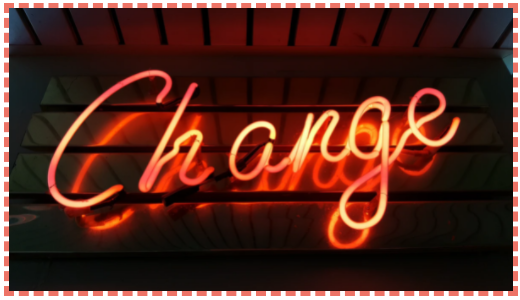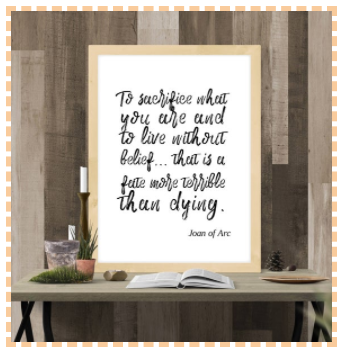5 Things to Remember When You 'Fail'
Jul 14, 2021A Fate Worse than Death...
Something you do not want to experience because it is so unpleasant or embarrassing.
I grew up being terrified of “failing”.
I know: that’s not terribly earth-shattering. In fact, it is solidly common.
I hate being common.
It has taken me an embarrassingly long time to reconcile these two ideas.
Think about it for a moment: being afraid of failing (and, therefore, trying) is common, so if I don’t want to be common, then I have to get over the fear of failing.
Easier said than done.
I chose a vocational path where ‘winning’ and ‘losing’ were realities (competition, rankings, prizes), and as much lip service as I gave to “growth”, “learning” and “development”, every time someone I worked with didn’t “win” (no matter the subjective nature of what I do, speaking, communicating presenting, isn’t exactly math or science), I, by extension, “failed”.
After all, as their trainer, coach, etc., it had to be ‘my fault’ they didn’t end up on top.
And yes, it was exactly as stressful as it sounds. Maybe even more so, because every time it happened I told myself a story about my worth.
And the story went something like: “Now everyone will know you’re not qualified, you don’t deserve the money they’ve paid you, you’ve failed them, you are a failure, you need to quit before you’re found out.”
I did this for years. Decades, even.
It didn’t matter that these ‘failures’ I imagined were statistically quite rare - frankly, the numbers told a different story, one of competitive ‘success’, business ‘success’.
It’s like the first college class I taught: 40 students gave glowing reviews; the 41st hated me.
And - no surprise - I framed my abilities as a prof based on #41. Yes, I recognize logically that this is ridiculous. But my emotions don’t care about my logic.
Do YOUR emotions care about logic? No. No, they don’t.
Failure FEELS Bad...Doesn’t It??

I’m not a dumb bunny. But I just couldn’t seem to figure out how - on one hand - I could know something (like 40 out of 41 was damn good odds) yet - on the other hand - facts could be utterly irrelevant to how I perceived myself.
So, I put my big melon to work to try to logic my way out of it.
It worked as well as you might imagine. Which is to say...it didn’t.
My solution? Do everything humanly possible to make person 41 love me, too. And not because I was a people pleaser - it had nothing to do with that other person, it turns out.
What it was really all about was the idea that if everyone loved me, I “won”. I craved it.
By the same token, if every person who worked with me “won” (by external measures), then I won.
So, I did absolutely everything in my power to ‘win’ - know the most, practice the most, train the most, achieve the most, work the longest hours, sacrifice whatever it took to “win”.
Because if it wasn’t a “win” it was a “lose” - a “lose” really meant “fail”, and “fail” meant I wasn’t worth anything - to others or myself.
Changing Failure

Around and around this went - and would have continued to go, no doubt - if I hadn’t stumbled across the ideas of beliefs, thoughts, emotions, actions, and their connections.
It was kind of a perfect storm, really. Simultaneously, research, experience, reading topics, training programs, everything I touched brought the same message to me.
I’ll be talking about these ideas more in the future, but for today, I’ll concentrate on one idea, and it’s this: what you believe about failure (and things you label as ‘failure’) propels your emotions.
Because belief (or the stories we tell ourselves about ourselves, others, and the world we live in) comes before thought, we will always default to that position, especially under stress.
So, while I was thinking differently about failure, it wasn’t enough to change my feelings, not when push came to shove.
Essentially, I was picking up the string at the ‘thoughts, emotions, actions’ stage, when I needed to go further back, and start from the origin - the ‘beliefs’ (then follow through to the rest).
How on earth do you change your beliefs?
Changing Beliefs

Here’s the thing about beliefs: we think they are our beliefs. They seem to originate from deep within our identity (and they do), and they seem to be of our own design.
Most of the time, however, we reach adulthood with a set of beliefs that we didn’t choose.
Nope.
Think about it: when you were five, were you really forming your own notions of ‘right’ and ‘wrong’, ‘success’ and ‘failure’? Were you choosing - at age three - to have baths and wash your hands?
When you were seven, were you choose to do your homework and practice your reading for your own personal reasons?
Of course not. You were being taught. Sometimes you were explicitly taught: “Here’s how to wash your hands”, “Wash your hands every time you use the washroom”.
More often than not, though, you were learning implicitly. That is, you were absorbing from the world around you. Good girls wash their hands. Successful girls do their homework.
When you did something ‘right’, you were given praise (or at least you weren’t punished); when you did something ‘wrong’, there was a consequence. You learned to equate ‘right’ with ‘good’.
But the kicker is this: many (if not most) of us also learned to equate ‘right’ with ‘good’, ‘success’ with ‘winning’.
Even when someone said, “Oh, it’s okay that you didn’t get the grade, win the award, make the team”, etc., the subtext was clear: it wasn’t really okay.
You internalized these messages as part of your narrative about yourself and you're worth.
And you’ve been operating from that belief system, in big ways and small, ever since.
If you choose, a (big) part of your adult work is digging through that sludge, finding where those weed-seeds were planted, and pulling up the roots. But, you have to choose that.
Maybe you’re happy as you are (great!), maybe there are bits and pieces of your belief-system you’re starting to question (which makes you normal), maybe you’re afraid of change, maybe you’re afraid (as I was) of offending those who had done the implicit/explicit teaching.
I was resistant for a long time.
But when I switched the lens and realized that those that had taught me had themselves been taught and that this was a chain that was built deep in the past, I made a choice: I would go all Daenerys Targaryan, and break the chains.
For myself, for my children (as much as that’s possible), and for others around me (largely by the example of possibility).
In fact, I’d say that 90% of the coaching work I do is really around this kind of idea - working with women to figure out which chains need to be broken, adjusted, rebuilt, redesigned so that they can make a future they want.
This is work. Real work. It takes time, effort, commitment, and patience. But - speaking from experience - it is sooooo worth it.
5 Things to Remember When You ‘Fail’
In the meantime, though, I want to plant 5 little seeds of my own today, within you:
-
‘Fail’ has three key meanings: a) being unsuccessful in achieving one’s goal, b) neglecting to do something, and c) ceasing to work properly/breaking down. Which do you actually mean? It can make a world of difference to get clear on this point.
-
Ask yourself: “Who has defined what ‘fail’ means to me?” Society? Family? School? Faith? Follow up with: “Do I want to let these external sources have the power to define this for me?”
-
Ask yourself: “What story am I telling myself about my value relative to the idea of failure?”
-
Look at your world: What effect are your current (unspoken, hidden) beliefs about ‘failure’ teaching others in your life? Your mentees, your children, your employees, your community?
- If you were to rewrite your ‘failure story’, what would become possible in your life?
Think of these 5 seed-questions as the work that needs to happen to ‘crack open’ the seed - and start the germination and growth cycle. You know me - I’m ALWAYS about the visualizations and metaphors! (occupational hazard).
Like I said - this isn’t easy work. I know that I’ve put enormous effort into this work in my life, and I know that I get discouraged, derailed, and distracted plenty.
Those old narratives/beliefs are powerful, and if you’re not on alert for them….they will take back over. Vigilance - and support! - makes all the difference. After all - that 41st student still (occasionally!) haunts my dreams...when I let my guard down.
Fire me an email if you want to figure out how to grow these new ideas through coaching. Check out other blogs/vlog/podcasts for all kinds of other goodies, too. Also! I’m JUST launching a group - The TEEHouse - as a space to support each other. It’s a ‘baby group’ - which means it’s just being created - and those that get in the TEEHouse now will get FAR MORE TEEwithD than when it grows big - hint hint, join now! https://www.facebook.com/groups/theteehouse
xo dee



